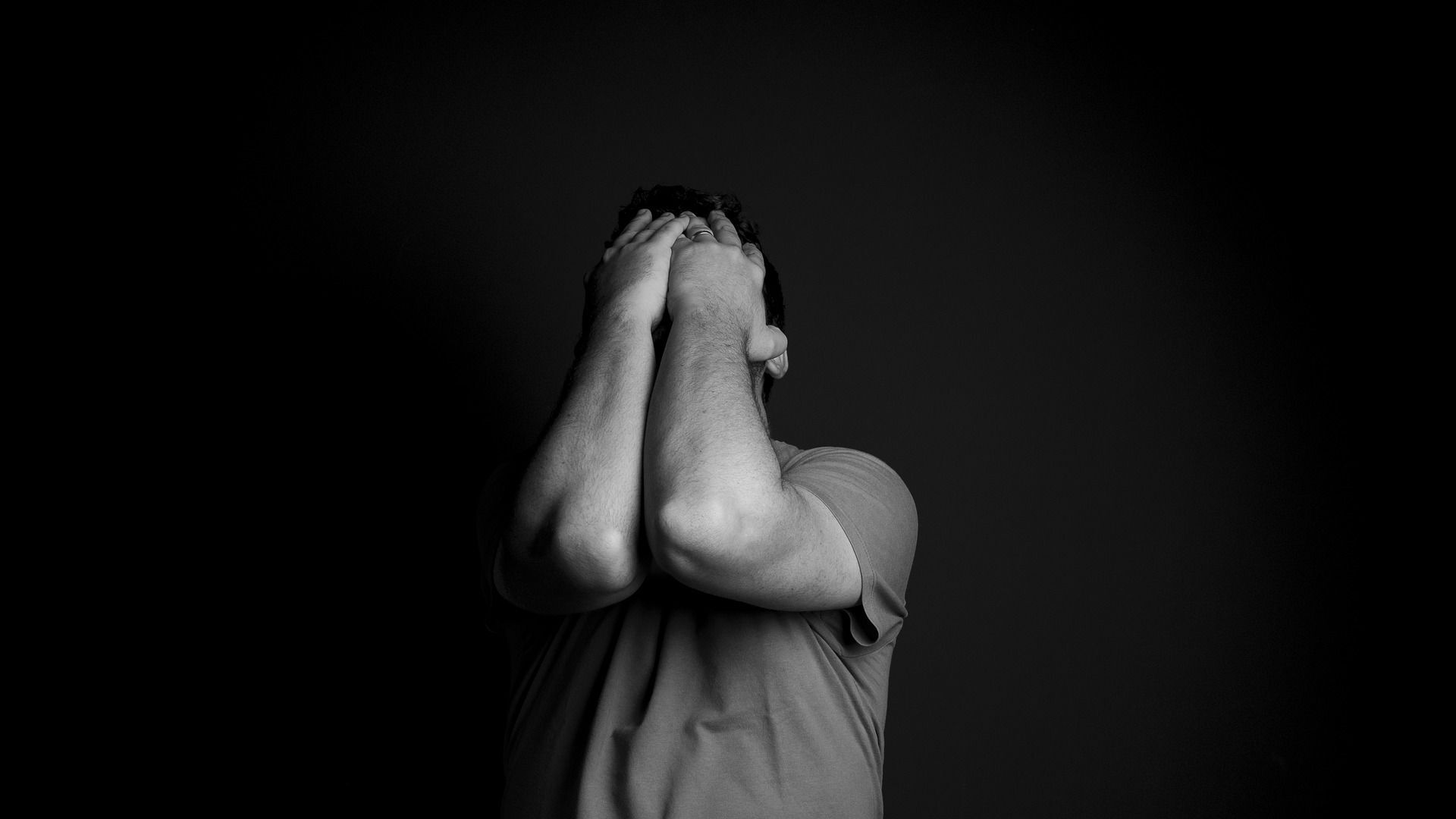https://sputnikglobe.com/20211214/worlds-happiest-country-sees-concerning-rise-in-depression-among-students-amid-covid-isolation-1091503642.html
World's Happiest Country Sees 'Concerning' Rise in Depression Among Students Amid COVID Isolation
World's Happiest Country Sees 'Concerning' Rise in Depression Among Students Amid COVID Isolation
Sputnik International
One in three Finnish students reported suffering from symptoms of anxiety and depression, with the rate even higher among women. Still, Finland has topped the rating of the world's happiest countries for four years running.
2021-12-14T06:42+0000
2021-12-14T06:42+0000
2021-12-14T06:49+0000
newsfeed
europe
finland
depression
scandinavia
covid-19
https://cdn1.img.sputnikglobe.com/img/07e4/09/0a/1080419654_0:0:1921:1080_1920x0_80_0_0_924958352c2292f2fc296fba51272e53.jpg
A Finnish research study into the health and mental well-being of higher education students has identified an alarming rate of symptoms of anxiety and depression.Of the over 6,000 students questioned by the Finnish Student Health and Wellbeing Survey (KOTT), carried out by the Public Health Authority THL and the Social Insurance Institute Kela every four years, wholly one in three appeared to have mental issues, with the proportion among women reaching 40 percent, the newspaper Hufvudstadsbladet reported.The study further found that female students were three times more likely to develop an eating disorder than their male counterparts.THL's Development Manager Suvi Parikka explained this with the increased workload during the coronavirus era, yet emphasised that mental strain and symptoms of anxiety and depression were on the increase even before the pandemic. According to her, the effects of the COVID-19 pandemic may have merely exacerbated these issues.The increased workload may be due to challenges arising from remote learning, which also causes isolation and loneliness.The survey was conducted during the third wave of the corona pandemic, in the spring of 2021, when many students were largely confined to their homes. This meant that much of the studying was done alone and the opportunities to maintain social networks were significantly limited and social activities commonly seen as part of the student life were either prohibited or restricted.Furthermore, it is unlikely that the situation will dramatically change any time soon, according to Parikka. Despite the fact that students have at least partly returned to campuses during the autumn term, the Finnish Student Health Service reported in November that demand for mental health services this autumn had exceeded total annual levels in the past.According to Parikka, it is clear that student health care and mental health services alone will not solve the mental health problems of young adults. The situation must therefore be addressed through cross-sectoral cooperation, and higher education institutes should actively seek out struggling students within the school safety net.However, there are also bright spots. For instance, the survey found that anxiety and depression were less common among students who exercised regularly.“A good night's sleep and a healthy diet helps students' well-being and recovery, in addition to maintaining social circles”, Parikka concluded.According to the European Council, about one quarter of Finns suffer from psychological symptoms with adverse effects at some time in their lives. It is estimated that seven percent of all Finnish adults suffer from depressive, anxiety, and alcohol-related disorders.Nevertheless, this doesn't prevent the Nordic country, known for its harsh frost and long dark winters, from topping the rating of the world's happiest countries for four years running.
https://sputnikglobe.com/20210319/un-names-finland-worlds-happiest-country-for-4th-time-in-row-1082391926.html
finland
scandinavia
Sputnik International
feedback@sputniknews.com
+74956456601
MIA „Rosiya Segodnya“
2021
News
en_EN
Sputnik International
feedback@sputniknews.com
+74956456601
MIA „Rosiya Segodnya“
Sputnik International
feedback@sputniknews.com
+74956456601
MIA „Rosiya Segodnya“
finland, happiest country, depressive and anxiety disorder
finland, happiest country, depressive and anxiety disorder
World's Happiest Country Sees 'Concerning' Rise in Depression Among Students Amid COVID Isolation
06:42 GMT 14.12.2021 (Updated: 06:49 GMT 14.12.2021) One in three Finnish students reported suffering from symptoms of anxiety and depression, with the rate even higher among women. Nevertheless, this doesn't prevent the Nordic country from topping the rating of the world's happiest countries for four years running.
A Finnish research study into the health and mental well-being of higher education students has identified an alarming rate of symptoms of anxiety and depression.
Of the over 6,000 students questioned by the Finnish Student Health and Wellbeing Survey (KOTT), carried out by the Public Health Authority THL and the Social Insurance Institute Kela every four years, wholly one in three appeared to have mental issues, with the proportion among women reaching 40 percent, the newspaper
Hufvudstadsbladet reported.
The study further found that female students were three times more likely to develop an eating disorder than their male counterparts.
THL's Development Manager Suvi Parikka explained this with the increased workload during the coronavirus era, yet emphasised that mental strain and symptoms of anxiety and depression were on the increase even before the pandemic. According to her, the effects of the COVID-19 pandemic may have merely exacerbated these issues.
The increased workload may be due to challenges arising from remote learning, which also causes isolation and loneliness.
The survey was conducted during the third wave of the corona pandemic, in the spring of 2021, when many students were largely confined to their homes. This meant that much of the studying was done alone and the opportunities to maintain social networks were significantly limited and social activities commonly seen as part of the student life were either prohibited or restricted.
Furthermore, it is unlikely that the situation will dramatically change any time soon, according to Parikka. Despite the fact that students have at least partly returned to campuses during the autumn term, the Finnish Student Health Service reported in November that demand for mental health services this autumn had exceeded total annual levels in the past.
According to Parikka, it is clear that student health care and mental health services alone will not solve the mental health problems of young adults. The situation must therefore be addressed through cross-sectoral cooperation, and higher education institutes should actively seek out struggling students within the school safety net.
“Universities need to highlight and strengthen community spirit, peer support and basic study guidance”, Parikka suggested.
However, there are also bright spots. For instance, the survey found that anxiety and depression were less common among students who exercised regularly.
“A good night's sleep and a healthy diet helps students' well-being and recovery, in addition to maintaining social circles”, Parikka concluded.
According to the European Council, about one quarter of Finns suffer from psychological symptoms with adverse effects at some time in their lives. It is estimated that seven percent of all Finnish adults suffer from depressive, anxiety, and alcohol-related disorders.
Nevertheless, this doesn't prevent the Nordic country, known for its harsh frost and long dark winters, from topping the rating of the world's happiest countries for four years running.




